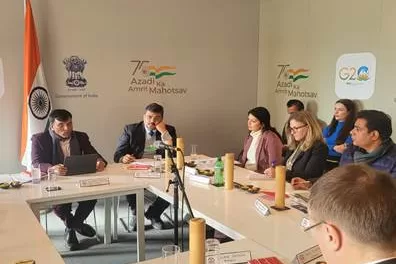
Fotini Leobilla has devoted her life to combating drug overdoses in Athens, Greece. In the early 1980s, she began using opioids and remained entangled in their grip until 1998 when her husband succumbed to an overdose. Her journey to recovery has made her acutely aware of the shame that often hinders individuals from seeking help. Along her path, she is haunted by the numerous overdose victims she has encountered.
Athens is just one of many cities worldwide striving to address the opioid crisis. Globally, nearly one-third of the almost 600,000 annual deaths resulting from drug use are attributed to overdoses, most of which involve opioids.
In March 2023, Greece, with the Ministry of Health and strong support from Prime Minister Mitsotakis, took decisive action to widen access to naloxone, a medication capable of reversing opioid overdoses within seconds. This initiative focuses on policies allowing the use of naloxone.
The City of Athens has played a pivotal role in this effort. It has joined the Partnership for Healthy Cities, supporting this endeavor, and partnered with local agencies to enhance emergency response and treatment for individuals who use drugs. Mayor Kostas Bakoyannis, along with the Ministry of Health and various stakeholders, is spearheading the campaign to enact a new national law that would make naloxone more accessible, including to the friends and family of individuals struggling with addiction.
Although naloxone is now available to most healthcare workers in Greece, Fotini’s mission is to extend access even further so that anyone using drugs or witnessing an opioid overdose can have this life-saving medication readily at hand.
The City of Athens’ strategy builds upon decades of investment in harm reduction services offered through organizations like OKANA and the Organization Against Addictions (KETHEA), which have established a robust support system for people dealing with substance use disorders.
Globally, only one in five individuals with substance use disorders receives treatment, underscoring the significant barriers to accessing care. However, in Greece, the President of OKANA, Athanasios Theocharis, has played a pivotal role in creating a comprehensive and long-term therapeutic approach accessible to all grappling with opioid dependence. This inclusive therapy encompasses both physical and mental health restoration and social reintegration. OKANA offers 64 facilities with opioid substitution therapy treatment centers, 75 prevention centers, and a drug consumption room.
Currently, OKANA’s health professionals and street workers administer naloxone in the field, saving lives. To date, 373 experts have been trained, and 131 overdose cases have been successfully reversed with naloxone.
Mayor Bakoyannis has made naloxone a central element of the city’s strategy to prevent opioid overdose deaths by equipping more community members, including family, friends, and street outreach teams, with the knowledge to approach individuals and build trust.
This approach aligns with WHO Guidelines on Community Management of Opioid Overdose, advocating for naloxone access and administration training for potential witnesses to opioid overdoses.

Dr. Tedros Adhanom Ghebreyesus, WHO Director-General, emphasized the essential role of medicines like naloxone and methadone in preventing and addressing drug overdoses and treating drug use disorders.
The City of Athens received recognition for this initiative in March from the World Health Organization, Bloomberg Philanthropies, and Vital Strategies at the Inaugural Partnership for Healthy Cities Summit in London.
Mayor Bakoyannis emphasized the importance of cooperation and coordination in this initiative, acknowledging that uniting voices and efforts is crucial to changing the legislative framework around naloxone. He stressed that too many Athenians lack access due to bureaucratic hurdles, which only perpetuates stigma rather than raising awareness.
George Kalamitsis, President of the Hellenic Liver Patient Association-Prometheus, part of the city’s coalition, emphasized that there is no one-size-fits-all stereotype for people dealing with opioid addiction. Contrary to media portrayals of impoverished users, the victims include family members, spouses, students, and colleagues.
Fotini Leobilla, drawing from her own experiences, underscores the critical importance of making naloxone more accessible. She recalls a moment when she used opioids with someone who overdosed, and her fear of legal consequences almost led her to abandon her friend. Instead, she called emergency services, which located the victim, administered naloxone, and swiftly reversed the overdose.
Fotini’s advocacy is fueled by her personal urgency. She passionately champions naloxone as more than just medication; it’s a beacon of hope, a second chance, and an opportunity to rescue lives otherwise lost to the clutches of addiction.











